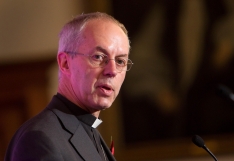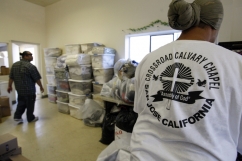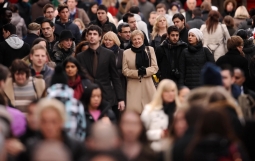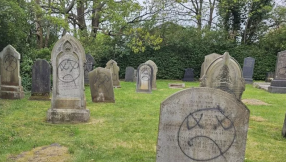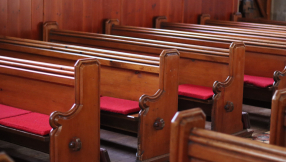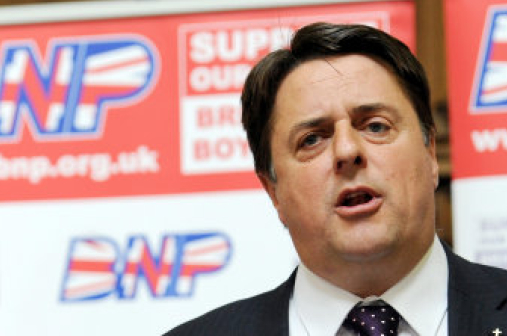
The annual British Social Attitudes Survey has this year revealed that levels of racial prejudice across the UK are "on the rise".
Published by the National Centre of Social Research, the survey found that disturbingly, 30 per cent of those asked admitted that they were either "very" or "a little" prejudiced against those of different races.
Of the 2,000 people surveyed, those living in central London were least likely to consider themselves racist, with 16 per cent, while in the West Midlands, a staggering 35 per cent described themselves as prejudiced.
The highest levels of prejudice were found among the over-55s, while 38 per cent of those without any qualifications admitted to racial prejudice, compared to 19 per cent of those with a university degree.
These statistics have been branded as "troubling" by the chief executive of NatCen, Penny Young.
"Levels of racial prejudice declined steadily throughout the nineties, but have been on the rise again during the first decade of this century. This bucks the trend of a more socially liberal and tolerant Britain," she said.
"Our local and national leaders need to understand and respond to increased levels of racial prejudice if we are to build strong local communities."
Ms Young told BBC Radio 4's Today Programme that the aftermath of 9/11 and fears surrounding immigration could account for the increase in prejudice.
Co-director of the survey Alison Park added, "Racial prejudice, in whatever guise, is undoubtedly still a part of the national psyche."
So does this have any bearing on whether there is racism inherent in churches and Christian culture? Interestingly, 'By their strange fruit' (BTSF), a US Christian group dedicated to bridging racial divides, this week published two posts on the subject of racial equity within Christian publishing.
Following the release of the InterVarsity Press (IVP) Fall 2014 catalogue, in which every single one of the featured authors is white – and only 4 of the 38 are women – an online debate began about the importance of giving Christian "authors of colour" a voice within the industry.
"I'm sure these are all excellent authors. And maybe there we[re] other authors w new fall books that were inadvertently left out," BTSF tweeted.
"But the result is a disheartening example of a preaching-praxis disconnect.
"@INTERVARSITYusa is great about proclaiming the importance of multicultural body of Christ.
"But it's central that we walk the talk & back it up with our ledger sheets."
In a follow-up blog post, BTSF notes the natural tendency for publishers to build relationships with authors similar to themselves (that is, usually, white). "Network-based strategies are great for developing business connections, but relationships are particularly vulnerable to racial bias. And the publishing world is highly dependent on relationships," it reads.
The article also stresses the importance of not confining those of different races to "niche" subjects; "authors of colour must also be consistently among those writing books on general theology, discipleship, and evangelism. Not just Black theology, Asian discipleship, Latino evangelism.
"Authors of colour should receive particular affirmation that their opinions matter on a wide range of subjects. Even in the context of writing, authors of colour are multifaceted and should be encouraged to target the many niches they occupy that may or may not have anything to do with their race," it adds.
These suggestions, coupled with the recent statistics from NatCen, beg the question of whether racism has left the church building, or is still rife in the pews.
Yemi Adedeji, director for the One People Commission at the Evangelical Alliance, says he is unsurprised by the survey's findings. "At any time of economic downturn, people will always look for someone to blame. When the economy is booming and everything's great then no one cares about segregation or immigration, but the downturn is a trigger, and that's when prejudice becomes high," he says.
"It used to be the blacks people blamed, then the Asians, and now it's the Polish and Romanians. It's all tied to the economy, and nothing to do with the people themselves. When there's a lack of jobs and prosperity, people are bound to blame somebody and who? The fresh migrants, of course."
As for the recent rise of UKIP and far right politics, Adedeji says it's linked to inherent prejudices, but not racism. "UKIP have black candidates standing for them, so you can't say it's a racist party, and I'm not a UKIP supporter, but it's fighting about the economy, for British people to get British jobs rather than opening the door for other people," he says.
It's all economically driven and that's all; during economic downturns prejudice is high, and that's natural, but I wouldn't call it racism."
Adedeji says he himself has experienced prejudice within a church context, but he thinks it's better to open up conversation to increase understanding of different cultures, rather than worry that the Church is consumed by racism.
"Personally, in my early days as a young Pentecostal missionary then working for the Church of England as an Anglican priest, travelling around churches in the UK I experienced not what I would call direct racism, but ignorance based on prejudice," he recalls.
"I got asked if I could speak English, if I'd arrived that morning, or if I could dance instead of speak. You could look at that and say it's racist prejudice, but I have come to understand that it's important to take into account the context someone's coming from, and then take them on a journey so they can understand yours. That's how we find unity.
"We must bring our prejudices to the table, and then look at what binds us as opposed to what separates us, and that's how we find how to navigate our future together."










